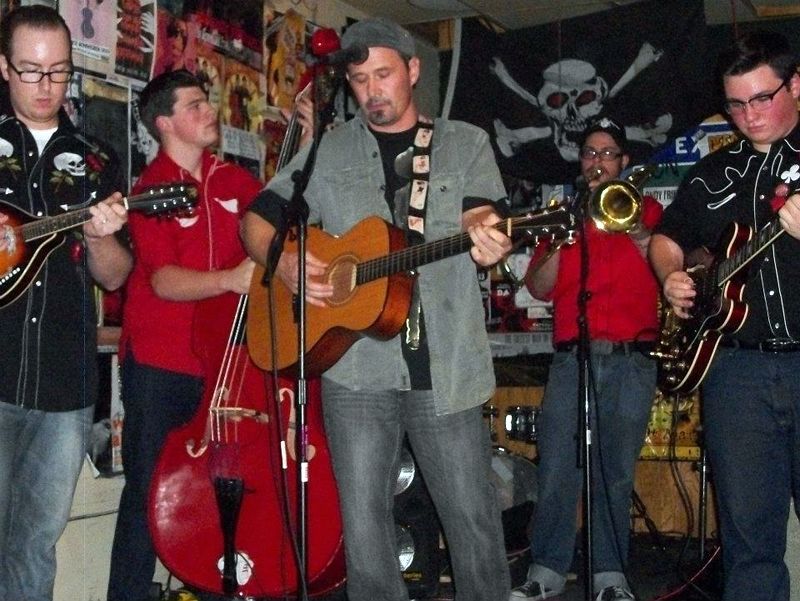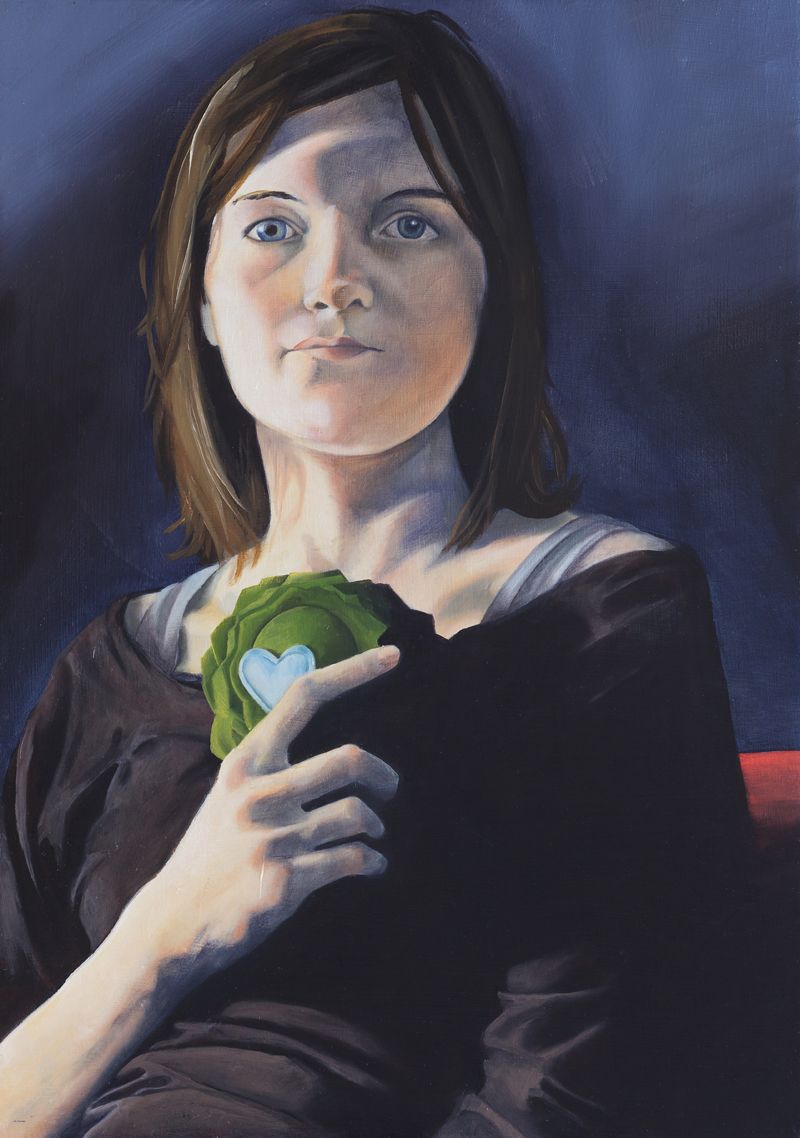Tradition is a tricky thing, especially when you try to become part of it. That’s what Darren “Dag” Hunt has discovered as he and his new band, Dag and the Bulleit Boys, have found themselves swept up in a century-old music tradition that has some new and vocal advocates. No matter what you call it – neo-trad country, outlaw country, XXX, underground country – the music that Dag and the Bulleit Boys play is part of a trend that’s taking traditional country music and filtering it through the musical rebellion of the late 20th century – most specifically punk – resulting in something like Jimmie Rodgers with lots of tattoos or Johnny Cash with even more of an attitude. Hunt is content to be considered part of that trend, but he’s quick to point out that he isn’t the typical underground country player.
“One distinct voice that’s coming to the forefront is one that says you shouldn’t be co-opting this music if you weren’t born into it, if you aren’t from the South,” he explains. “You don’t have authenticity or legitimacy if you aren’t a former punker, your dad raised you on country, then you went off and played punk for 10 years before coming back to traditional country.”
Hunt may not have the right hometown address – he was raised in Idaho and didn’t listen to much country music while he was growing up – but he can claim a genealogical link to a long line of Missouri farmers, which should give him sufficient rural cred to be allowed to play neo-trad country. What’s more important, though, is that he loves the music, and he’s a good enough storyteller to write songs that do the tradition proud.
He’s been doing it for awhile, but the current band is a project that’s just getting off the ground. Hunt met brothers Logan and Levi Blauvelt through their dad, Les, who was a fan of Hunt’s previous band, The Rewinders. Some jamming with the Blauvelt boys in early 2011, with Logan on upright bass and Levi on guitar, led to the formation of the Bulleit Boys. Josh Schall added mandolin to the mix a short while later, and Hank Whitman came aboard with his trombone around the same time.
From there, things happened fast. Less than a year later, the band has an album and the attention of fans of the genre across the country. They’re getting exposure as far afield as Texas, and the underground country scene in Chicago is taking notice of them. Internet radio venues like Outlaw Radio Chicago make it possible for a band that might otherwise spend all its time playing for modest bar crowds in Fort Wayne to find itself in the middle of a nationwide music movement. That’s a good thing, Hunt acknowledges, but it requires a player to have a solid sense of his own identity.
“It’s a wave that almost everyone wants to ride,” Hunt says. “All the punkers have suddenly become bluegrass players. But that’s not who I am. I’ve always been more straight-ahead country, nothing punky.”
Not that you can’t be straight-ahead country and still have plenty of punk’s anti-establishment attitude. Given that mainstream country, as controlled by the Nashville industry, has always been about aligning traditional country music with more lucrative pop music, it’s not surprising that traditionalists have periodically chafed against the mainstream over the past 100 years or so. Underground country is just the latest in a cyclical history that sees country outlaws emerging from the crowd over and over again. Hank Williams did it. Johnny Cash did it. Merle Haggard did it. Willie Nelson and Waylon Jennings did it. Steve Earle did it. As much as the young XXX practitioners want to think they’re on to something new, Hunt knows there’s nothing new under the country sun.
“People may hear one of our songs and say, ‘Isn’t that “Folsom Prison”?’ And, yeah, it is. It’s the same chugging train rhythm, but Johnny Cash got it from Jimmie Rodgers. Merle Haggard got it from Jimmie Rodgers. And Jimmie Rodgers probably got it from some black guy who had been playing it for a long time before Rodgers played it. I hope that I bring something original to my songs – a bit of melody, a lyric, an original story – but I don’t have an expectation that the songs are going to be original in terms of that tradition.”
With that in mind, Hunt is ready to look ahead. The band’s first album, Bulleit Train, was recorded before the current line up came together, and Hunt is eager to record with the new crew. More significantly, he’s looking forward to recording a new kind of song. The band’s current oeuvre covers the principle themes of trad country music (the band is named after a brand of bourbon, after all, and the album has a train on the cover), but Hunt is ready to move beyond songs about drinking, the songs he wrote during a particularly dark, single-minded time in his life.
“When I look back on it now, it all makes sense,” he says. “But at this point, I’m pretty sure I’ve written all the drinking songs I’ll ever need.”
Instead, he’d rather write deeper, more human songs.
“I’m not good at love songs,” he admits. “I’m mainly a cynic. I’m a skeptic at heart, about the state of the world, but I don’t want to put all that crap into songs. I don’t want to bring people down. I’m not going to be writing songs about Syrian protestors, even though those are the kinds of things I care deeply about. I’m wanting to write songs about the human condition, and I want to write them with humor, with sadness. I want to look for the nuances, the subtlety as I write about what it means to be human.”
No matter what he writes about, though, Hunt and his Bulleit Boys will be sure to stay true to a history for which they have great respect.
“We’re stepping into a river of tradition that’s been flowing for a hundred years, and we’re just trying to make a ripple.”


